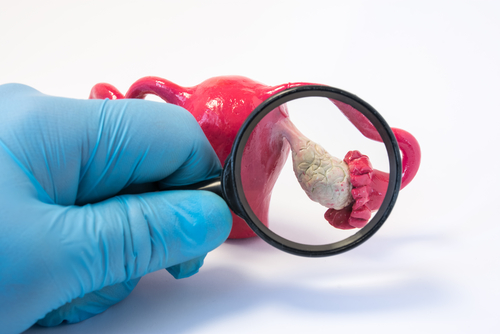The U.S. Food and Drug Administration granted orphan drug status to GamaMabs Pharma’s investigative therapy GM102 for the treatment of gynecological cancers, including ovarian, fallopian tube, and primary peritoneal cancers.
The designation is expected to support the development of the therapy candidate, which targets rare cancers that affect approximately 175,000 women in the U.S.
Orphan drug designation grants seven years of market exclusivity if it is approved, and provides additional benefits, including financial support, tax credits, and FDA development guidance.
“We are delighted that our lead drug, GM102, has received Orphan Drug Designation from the FDA,” Isabelle Tabah Fisch, chief medical officer of GamaMabs, said in a press release. “GM102 belongs to a new generation of immunotherapies; it brings hope to this subgroup of patients with advanced ovarian cancers.”
GM102, formerly known as 3C23K, is an antibody that was initially discovered at the Institut de Recherche en Cancérologie de Montpellier in France, and is currently being developed by GamaMabs Pharma in France. It targets the Anti-Müllerian Human Receptor II (AMHR2) that is present in the ovary and testis of healthy adults, and in 65 percent of gynecological cancers.
Preclinical studies have demonstrated the specificity and efficacy of the antibody against AMHR2-positive tumors. GM102 activated macrophages, a type of immune cells, which killed cancer cells by engulfing them.
Importantly, the approach worked in synergy with the standard of care chemotherapy for ovarian cancer – Paraplatin (carboplatin) and Taxol (paclitaxel).
GM102 is currently being evaluated in a Phase 1a/1b trial (NCT02978755) in patients with advanced, AMHR2-positive gynecological cancers. The trial, being conducted in Belgium and France, will be in two parts.
First, participants will receive one of six GM102 doses, given once every two weeks until disease progression or until patients experience some toxicity. Weekly GM102 will also be tested in combination with chemotherapy in four additional groups.
After the best GM102 dose is selected, it will be further tested for safety and effectiveness in the Phase 1b part. This part will include patients with confirmed AMHR2-positive ovarian, endometrium, and cervix cancers, to assess GM102’s anti-tumor activity.
In this part, the main goal is to determine the incidence of serious adverse events. But researchers will also assess the proportion of patients who benefit from the treatment – with either disease stabilization or reduction in tumor size – for more than three months.
Interim results are expected in the first half of 2018.
“We are committed to the rapid progress of the clinical development of GM102 and look forward to presenting the initial results from our clinical study,” Fisch said.

